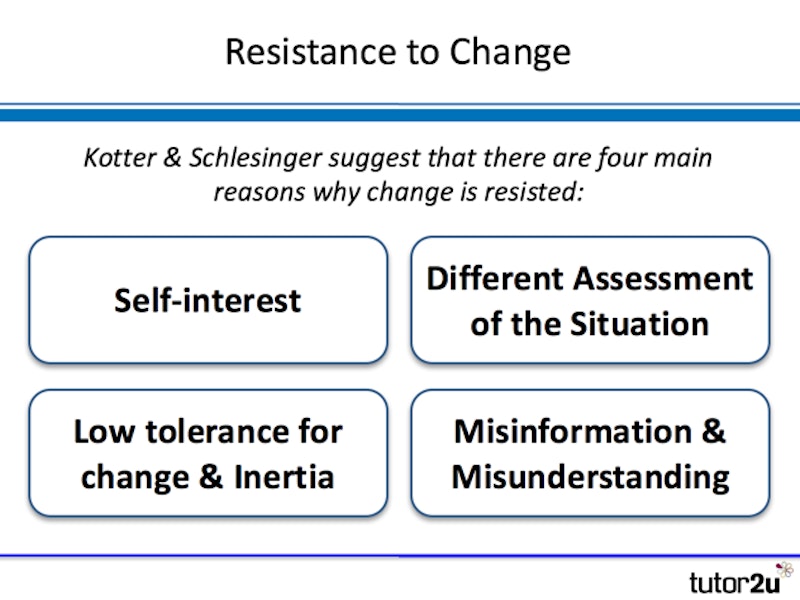Study Notes
Change Management - Why Change is Resisted (Kotter & Schlesinger)
- Level:
- A-Level
- Board:
- AQA, Edexcel, OCR, IB, Eduqas, WJEC
Last updated 22 Mar 2021
There are many reasons why change is resisted by people working in business. This study note outlines the four main reasons as identified by Kotter & Schlesinger.

Self-interest
Self-interest is a powerful motivator
Arises from a perceived threat to job security, status and financial position
Understandable - why would you want to lose something you believe to be valuable?
Individuals often place their own interests ahead of those of their organisation, particularly if they don't feel a strong loyalty to it
Misinformation & Misunderstanding
People don’t understand why change is needed, perhaps because they are misinformed about the real strategic position of the business
Perception may be widespread that there is no compelling reason for change
Perhaps even an element of people fooling themselves that things are better than they really are
Different Assessment of the Situation
Here there is disagreement about the need for change or what that change needs to be
Some people may simply disagree with the change proposed, or they may feel they have a better solution
This is different from “self-interest” – the resistance here is based on disagreement about what is best for the business
Low Tolerance and Inertia
Many people suffer from inertia or reluctance to change, preferring things to stay “the way they are”
Many people need security, predictability & stability in their work
If there is low tolerance of change (perhaps arising from past experience) then resistance to change may grow
You might also like

Organisational Culture: Toxic Culture and Business Performance
27th February 2015
What is Organisational Culture?
Study Notes
Handy's Model of Organisational Culture
Study Notes
Organisational Culture Revision Quiz
Quizzes & Activities

Rolls Royce CEO admits major strategic issues need fixing
26th November 2015
Retrenchment
Teaching PowerPoints